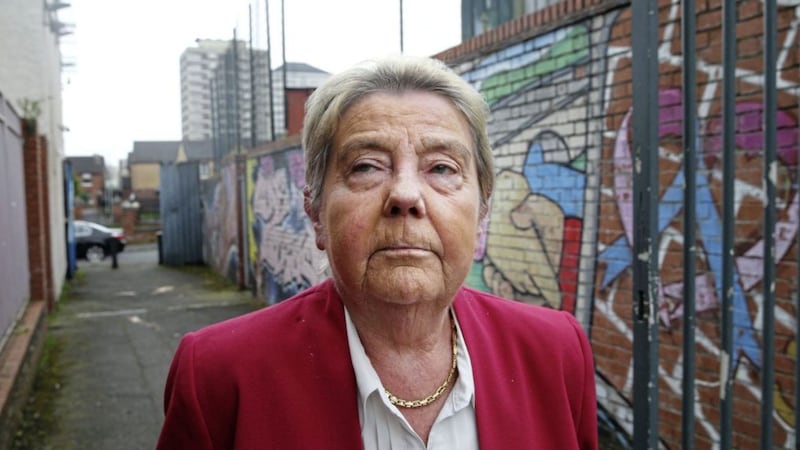NORTHERN Ireland is a year from a "welfare cliff-edge" which will see an increase in child poverty, food banks, rent arrears and "mass evictions on an unimaginable scale", academics and aid groups have warned.
Stormont's deal to ease the burden of welfare reforms - including the bedroom tax and benefit cap on family size - will run out in 2020, with experts calculating "tens of thousands of vulnerable people" will be plunged deeper into poverty.
Advice NI and NICVA yesterday brought together scholars and those on the frontline dealing with those struggling under the British government's welfare reforms.
Professor Eileen Evason, who led the Welfare Reform Mitigations Working Group established in November 2015 through the 'Fresh Start' agreement, warned that families, fearful of future sanctions, are turning down family homes to live in overcrowded conditions.
Her 2016 report led the executive to allocate £585 million over four years to top up the UK welfare arrangements in Northern Ireland.
It was to have been reviewed in 2018/19, but the political collapse means any extension of legislation cannot be passed.

Glenda Davies, of Sandy Row Community Forum, said even before the `cliff-edge' is reached, there are already "record numbers" facing eviction due to welfare reform and "stress and anxiety" over Universal Credit.
Prof Evason said the lack of appropriate housing stock means people will have their benefits docked through no fault of their own because they have an `extra' bedroom in their homes.
Keelan McGaghran of Radius Housing said almost 2,000 tenants face losing £1.6 million collectively because there are no smaller homes available.
This is against a backdrop where increasing numbers of people are living in the private rented sector where, according to Kevin Higgins of Advice NI, "more people are living in poverty" than in social housing, with one in six spending more than 40 per cent of their income on rent.
He revealed the sobering statistic that 34,000 `bedroom tax' households will lose £22m in support with "perhaps tens of thousands of tenants... unable to pay their rent, falling into arrears and over the cliff edge of eviction".
Additionally the benefit cap will see 1,500 - currently protected - families with children lose support totalling £3m next March.
In the same month thousands of people sick and disabled, and up to 1,500 of their carers, will see their support "prematurely end".
Mr Higgins warned there "will be uproar" when the "financial tsunami" hits.
"Some claimants have already lost their `bedroom tax' mitigation, and their housing arrears have quadrupled as a result," he said.
"We are deeply fearful that if mitigation is lost by 34,000 households we will see mass evictions on an unimaginable scale. That's just in relation to bedroom tax; consider also those lone parents with children whose housing support is cut, for some by over £100 per week."
All the main political parties are in favour of the existing package of measures continuing.
A recent Department for Communities review recommended "the continuation of this policy and it suggested money could be provided through a `discretionary housing payment' fund.







